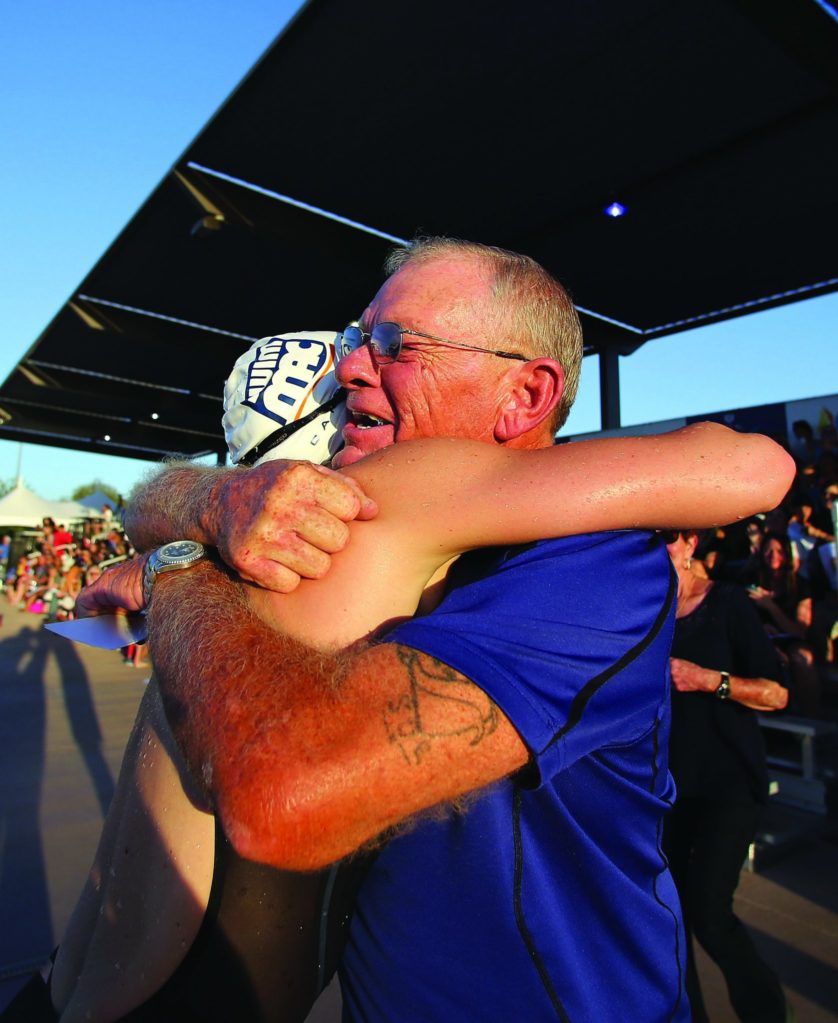The relationship between an athlete and a coach can be complicated. It involves a personal bond but on a professional basis. Everything we’ve been told about mixing business and pleasure goes out the window. It requires responsibility from both sides and takes time to develop. Throughout my sporting career, I have had a close relationship with my coaches but there was a time when I regretted rushing into it.
I moved to Europe from the United States to join a new coach, one who I had only met on a few occasions. I was taken by the advice he offered me during a competition. I was already a successful swimmer and had the medals to show for it, but to remain successful, I needed something to change. So, when presented with his subsequent proposal and promise, I grabbed what I thought was an exciting opportunity.
Two weeks later, I realized I had not done my homework. The situation I had got myself into was not what I had expected. I was an elite athlete with three Olympic Games behind me, seven Olympic medals, multiple world records and my new coach was a junior level club coach with little international experience. I found it difficult to communicate with both him and his ego. Ego can be confused with confidence; it will stunt your growth because you fail to listen to others. This became a detriment to our partnership.
I tried making it work by following his program and quietly focusing on my individual desperation to succeed. It was too late and I started feeling what I had only ever seen others endure. For the first time, a lack of confidence had become my problem. As my confidence continued to cascade, so too did my passion in swimming. I was no longer swimming for the enjoyment of the sport; I was swimming because I thought I had nothing else. Perhaps change was not what I was after. The tipping point came during a competition when my coach’s temper burst into a dramatic fit of tantrums, in front of all the other athletes and coaches. My embarrassment and anger at him, and at myself for letting this happen, gave me the courage I needed to finally make the right decision.
Within a day, I had moved countries and flown back to my coaches in the United States. Now I knew what I wanted and I was anxious to get my confidence back. I had trained under Kim Brackin and David Marsh for a long time and we share a good relationship because they know me as a person, not just an athlete. This is essential for understanding what can affect an athlete outside of sport because of the impact it can have on training.
Their experience also matched the level of training and competition I required. This kind of platform enables us to balance expectations and hold each other accountable to our goals. I was no longer open to change but the necessity for it was confirmed when my coaches provided it for me. It came in the form of a team.
A team is not just a group of individuals with a common purpose. It is a group of passionate individuals with different strengths that help improve the weaknesses in each other to achieve a common goal. The team is made successful by good leadership. A good coach, like a good leader, is always learning, open to ideas and constantly searching for the most effective and efficient methods for improvement. This makes them willing to change, willing to evolve and, if properly communicated with the athlete, evolve together.
To successfully evolve together, the relationship between an athlete and a coach has seven elements: trust, experience, communication, accountability, passion, patience and time. For the magic to work, there is an eighth element that binds it all together – respect. It is vital that these components come from both the coach and the athlete and for that to happen both must earn each other’s respect.
The coach has to take the lead and, as the relationship progresses, a partnership will begin to emerge. A good coach not only prepares you for sport but they prepare you for life. They provide challenges that make for a better athlete and guidance in dealing with those challenges that make for a better person.
